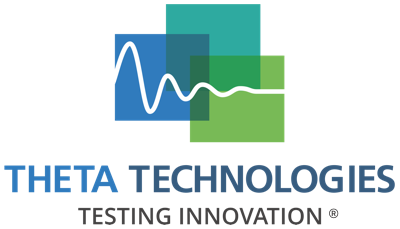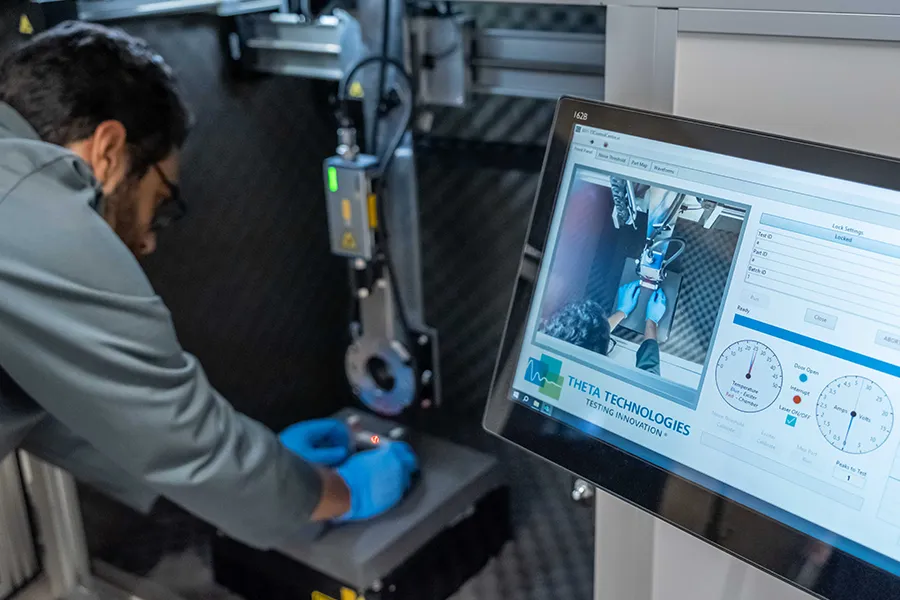
Setting the standards for additive manufacturing non-destructive testing (NDT) solutions.
Theta Technologies non-destructive testing technology allows additive manufacturers to understand their components like never before.
As additive manufacturing continues to reshape industries, the quality and integrity of components become paramount. Enter Theta Technologies, a trailblazer in non-destructive testing (NDT) for additive manufacturing. Their ground-breaking resonance technique, rooted in nonlinear acoustics, not only detects flaws with unparalleled precision but also offers an abundance of additional data help you get to know your components better. Theta Technologies, consistently staying ahead of the curve. Their innovative solutions are setting new benchmarks in quality assurance and are poised to elevate the future of additive manufacturing.
The additive ambition
For those with unwavering ambition of adopting additive manufacturing for critical applications, the most recent ISO/ASTM standards publication, TR 52905:2023 is a must for the reading list; providing manufacturers access to an abundance of information relating to the non-destructive testing and evaluation of additive manufactured metals.
A crisis in confidence
One of the most significant obstacles preventing the widespread acceptance of additive-manufactured components is the lack of approved quality standards. This can be attributed to the technique’s relative infancy compared to traditional material manufacture. 3D printing simply hasn’t been in existence long enough to implement such standards. Although promising signs are starting to show, confidence in fully deploying additive manufactured components within safety-critical industries such as aerospace remains relatively low.
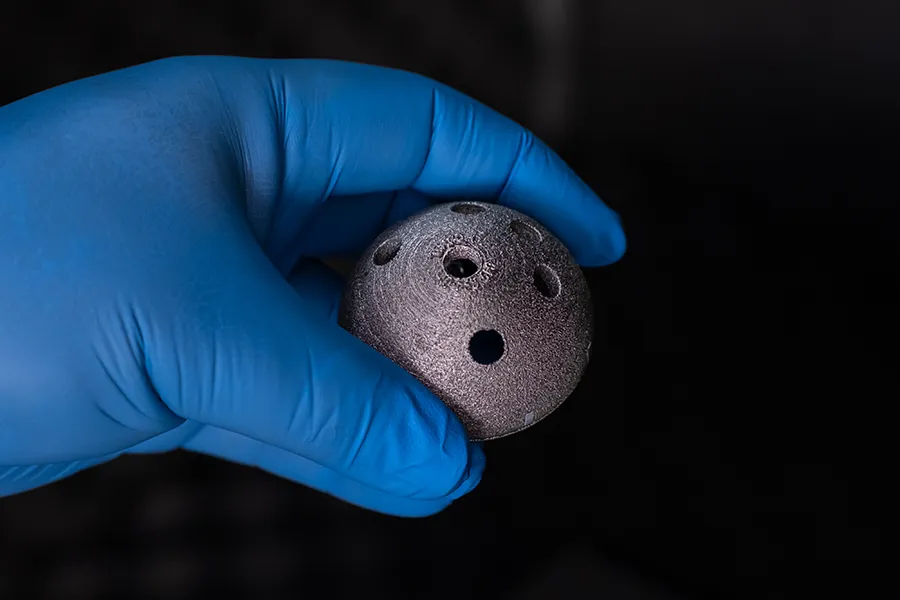
Nonlinear resonance NDT: A recognised technique
Despite a limited number of testing techniques being recognised within the recent ISO/ASTM standards publication, Theta Technologies’ nonlinear resonance testing method more than made the cut. Written five years ago, the standards document provides an in-depth review of the viable NDT options available at the time for the rapidly accelerating production of metal AM parts.
Theta Technologies’ resonance technique, derived from nonlinear acoustics, was a notable inclusion within the standard and highlighted some promising capabilities in key areas. These included the detection of cracks and lack of fusion, the identification of internal cracks and layer defects, voids, and porosity. Theta Technologies’ resonance technique was also listed as one of the methods demonstrating the most potential for the all-important post-processing steps associated with additive manufacture.
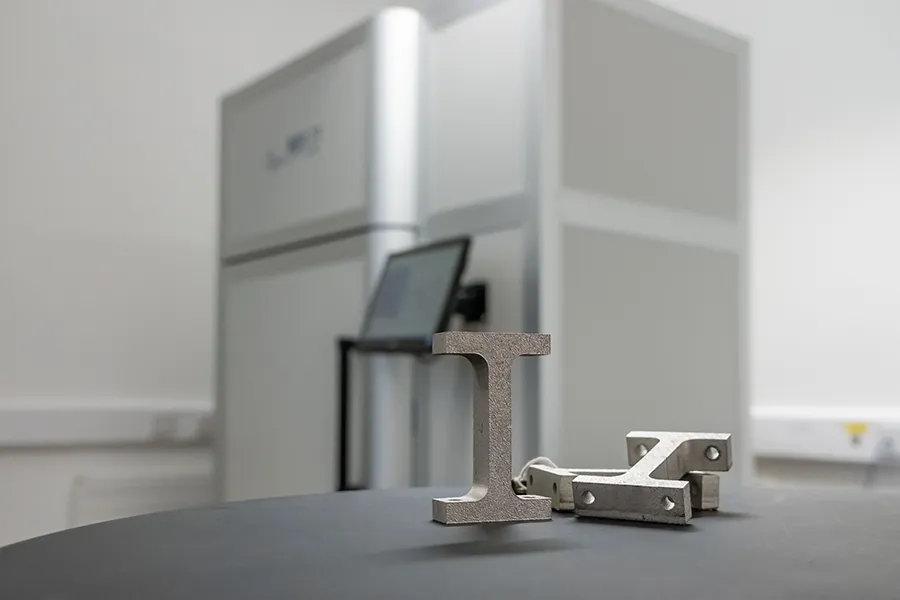
Building on potential
Fast-forward five years and the product offering from Theta Technologies looks drastically different to that which showed so much promise. The most significant development is a commercially available product.
In 2022, Theta Technologies unveiled RD1-TT, which utilises Theta Technologies’ unique nonlinear resonance NDT technology. This unique solution is designed to perform in several key areas associated with additive manufacture; ones where other methods have to date all-but failed to deliver. Refinements to both hardware and software over the years since the notable inclusion in the ISO/ASTM standard have transformed nonlinear resonance into an advanced solution for additive manufacturers. Immediate post-printing inspection, even while the part remains on the build plate, an ability to test for flaws in parts with complex geometries and internal structures, and the capability to test additive manufactured parts with inherent surface roughness are all key areas in which Theta Technologies’ nonlinear resonance solution can deliver where others simply haven’t been able to. In effect, RD1-TT removes the most significant obstacles from the quality assurance process that have hindered the widespread adoption of additive manufactured components.
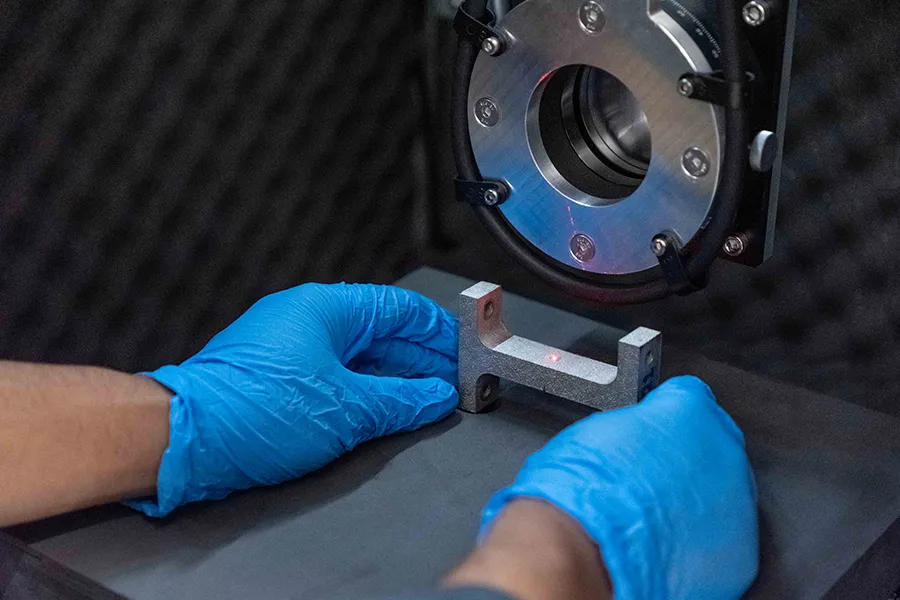
So much more than flaw-detection
Theta Technologies’ quest for innovation has not stopped at solving the flaw detection challenges for metal AM. Several recent technological advancements look set to offer even more benefits to additive manufacturers; none more notable than the ability to extract additional data that details component material and dimensional properties.
The very nature of additive manufacturing means that producing large batches of identical parts is a challenge of its own, but one that can often be a key requirement of the manufacturing process. Space flight applications such as rocket nozzles and antenna supports, notoriously challenging for additive manufacturing, are increasingly using topological optimisation to generate lightweight, high-performance parts. This however relies on the material properties of the as-printed part matching those used in CAD models. The extra data provided by Theta Technologies’ nonlinear resonance technique allows the predicted stiffness of key parts of the component to be validated non-destructively.
The added benefits of nonlinear resonance
Theta Technologies recognised the significance of the data they could acquire and what started out as a by-product of a nonlinear resonance non-destructive test quickly developed into an added benefit. Customers are already beginning to explore the potential of this additional data and control the variety of post-processing steps for a tightly toleranced final product.
Where are we now?
Theta Technologies’ approach has always been underpinned by the desire to provide innovative solutions to customers existing problems, and their most recent technological developments look set to revolutionise the qualification of NDT systems for additive manufacturing.
In 2022, ISO/ASTM published a standards document (TR 52906:2022) focussing on the possible methods to intentionally seed flaws into metallic parts. The goal of seeding such flaws would be to qualify suitable NDT systems for additive manufacturing. Through work with various customers, Theta Technologies knows all too well that the validation of their nonlinear resonance NDT technology is dependent on the testing of both flawed and flawless parts. As additive manufacturing technology and practices develop, the likelihood of producing flawed parts is diminished. Therefore, an ability to intentionally induce flaws into AM parts for the purposes of validation could prove to be a fundamental step in quality assurance.
In a collaborative project with Plymouth Science Park, Theta Technologies have recently developed an effective technique to induce such flaws into AM metal parts. Why? Given the proven sensitivity of Theta Technologies’ nonlinear resonance NDT technique, representative microcracks can be induced into multiple test specimens for validation of NLR and other NDT techniques, further pushing the drive to scaled AM production. Without statistically relevant numbers of test pieces containing the same type of flaw, it is virtually impossible to qualify NDT processes.
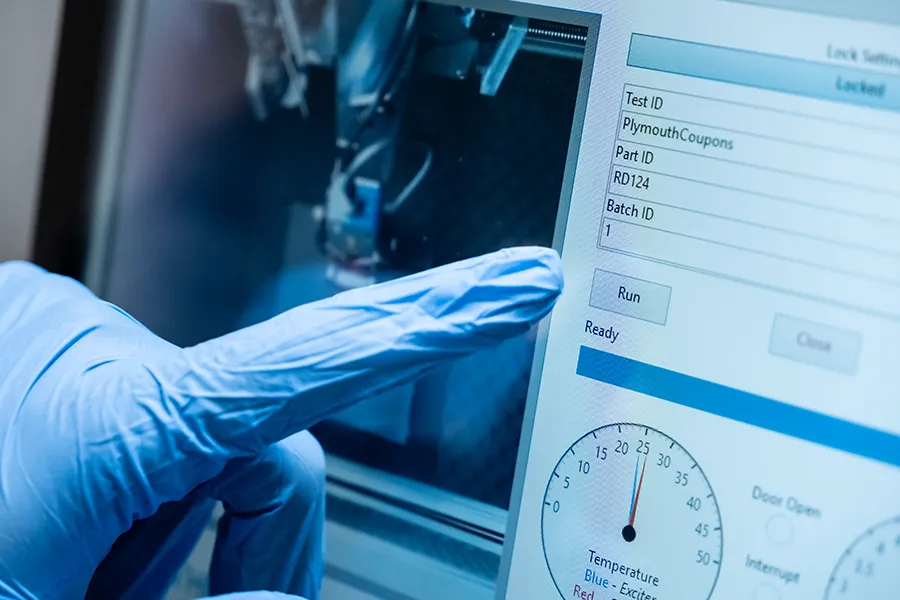
Conclusion
It is a fundamental requirement for innovative companies to continue to adapt to new challenges, not just their own but those of the customer. Theta Technologies’ ‘promising’ non-destructive testing method that was recognised in the ISO/ASTM TR 52905:2023 standard publication five years ago has proven to be just the tip of the iceberg for the company who continue to refine their product for the benefit of their customers. It’s no secret that additive manufacturing has had its own set of unique challenges, but with an ever-expanding portfolio of techniques in the arsenal, Theta Technologies are ideally placed to help propel those with an unwavering ambition for additive manufacture to new heights.
Theta Technologies Limited

Address
Theta Technologies Limited
3 Babbage Way
Exeter Science Park
Clyst Honiton
Exeter
EX5 2FN
United Kingdom
Terms & Conditions Privacy & Cookie Policy Anti-Slavery Policy © Theta Technologies. 2023
